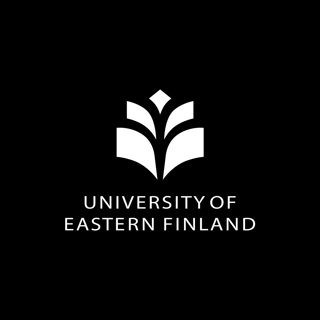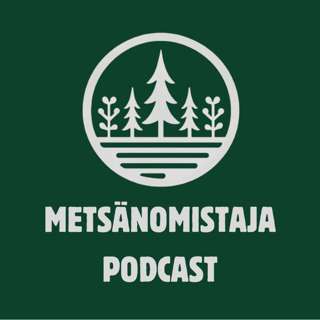
The Science of Laughter
Why do we laugh more when we’re with others? Are humans the only animals that laugh? Does ‘laughter yoga’ actually do anything? We're delving into the neurobiology, evolutionary history, and health effects of a good old chuckle.Live from the Hay Festival Winter Weekend, Marnie Chesterton is joined by laughter expert and neuroscientist, Professor Sophie Scott, and an expert in making people laugh, comedian Miles Jupp, in this side-splitting panel show.Presenter: Marnie Chesterton Producer: Ella Hubber Editor: Martin Smith Production Co-ordinator: Jana Bennett-Holesworth To discover more fascinating science content, head to bbc.co.uk search for BBC Inside Science and follow the links to The Open University.
30 Tammi 28min

Board Game Science
It’s that time of the year when many of us are at home with friends and family, losing track of time, eating leftovers, and, of course, playing games. This festive season, we look at the science of games and, of course, play some ourselves. It’s presenter Marnie Chesterton versus producer Florian Bohr at Marnie's kitchen table.... Who will win the Inside Science games special?Irving Finkel from the British Museum tells Marnie about the Royal Game of Ur, one of the most ancient board games which is strikingly similar to more modern examples of race games. Also, why we play games with author and neuroscientist Kelly Clancy, and why we struggle to comprehend the randomness of dice with author Tim Clare. To finish it off, mathematician Marcus du Sautory explains the geometry behind the game Dobble and leaves listeners with a Christmas puzzle: Can you figure out the symbols on the two missing Dobble cards? If you think you’ve found the solution, please email insidescience@bbc.co.ukPresenter: Marnie Chesterton Producers: Florian Bohr Editor: Martin Smith Production Co-ordinator: Jana Bennett-Holesworth To discover more fascinating science content, head to bbc.co.uk search for BBC Inside Science and follow the links to The Open University.
23 Tammi 28min

The Year in Science
We look back on 2024 in science, from billionaires in space, to record-breaking heat here on Earth, and the meteoric rise of new weight-loss drugs. From the biggest stories to the unsung and the plain fun, Inside Science presenter Victoria Gill hosts a special panel, featuring: - Libby Jackson, head of space exploration at the UK Space Agency - Penny Sarchet, managing editor of New Scientist - Mark Miodownik, a materials scientist from University College London Presenter: Victoria Gill Producers: Gerry Holt Editor: Martin Smith Production Co-ordinator: Jana Bennett-Holesworth To discover more fascinating science content, head to bbc.co.uk search for BBC Inside Science and follow the links to The Open University.
16 Tammi 28min

The rising threat of bird flu
More species infected than ever, an uptick in human cases, and some concerning biological modifications. How close are we to a bird flu pandemic? We digest the last year of bird flu changes with virologist Tom Peacock and public health journalist Melody Schreiber. Also this week, we address the absurd problem of transporting something that can't be touched, we find out how animals make their epic migratory journeys, and Victoria Gill visits a town which has learnt to ward off a fearsome predator, polar bears.Presenter: Victoria Gill Producers: Ella Hubber & Gerry Holt Editor: Martin Smith Production Co-ordinator: Jana Bennett-Holesworth & Josie HardyTo discover more fascinating science content, head to bbc.co.uk search for BBC Inside Science and follow the links to The Open University.
9 Tammi 28min

Fact-checking the Bovaer backlash
Some social media users have been pouring milk down the drain and chucking their butter in the bin in protest over a new additive in cow feed that claims to reduce methane emissions. The online posts, attacking Arla Food’s trial of Bovaer with three big supermarkets and 30 farms in the UK, have had millions of views. So, what do we know – what is this additive and how is it going to tackle burpy cows? And what is the evidence it is safe? We interrogate the science with Sharon Huws, professor in animal science, and food scientist Dr Stuart Farrimond... Also this week, are billionaires really deserting Earth for space? What is the upshot for our plastic waste problem after global talks on a treaty ended in failure? And why, just why, are orcas being spotted wearing salmon hats? Presenter: Victoria Gill Producers: Sophie Ormiston, Ella Hubber & Gerry Holt Editor: Martin Smith Production Co-ordinator: Jana Bennett-Holesworth To discover more fascinating science content, head to bbc.co.uk search for BBC Inside Science and follow the links to The Open University.
2 Tammi 28min

Is flood forecasting failing?
The south Wales town of Pontypridd saw cars submerged, people bailing floodwater out of their homes using bins, and the beautiful park and lido transformed into a brown mess, as parts of the UK were flooded. But, it's nothing new. Pontypridd was severely flooded just four and a half years ago – and these are scenes that play out around the UK every winter. So, is the way we warn people about floods failing? We’re going to unpick exactly how floods are forecast – and what went wrong – with natural hazards researcher and hydrologist, Professor Hannah Cloke. Also this week, sharing your microbiome with friends, alternative plastics, and was the most recent climate summit good COP or bad COP? Presenter: Victoria Gill Producers: Gerry Holt, Sophie Ormiston & Ella Hubber Editor: Martin Smith Production Co-ordinator: Jana Bennett-Holesworth To discover more fascinating science content, head to bbc.co.uk search for BBC Inside Science and follow the links to The Open University.
26 Joulu 202428min

The climate cost of war
As conflicts in the Middle East and Ukraine continue to dominate the news, many Inside Science listeners have been in touch with the same question: What is the carbon footprint of war? How significant is the impact – and is it crass to even talk about it? We’re joined by Benjamin Neimark from Queen Mary University in London. Also this week, we chat to the incoming DG of Europe’s particle-smashing facility Cern, what have we learnt by defrosting an extinct big cat and, the beetle that could ruin Christmas... Presenter: Marnie Chesterton Producers: Florian Bohr, Ella Hubber & Gerry Holt Editor: Martin Smith Production Co-ordinator: Jana Bennett-Holesworth If you want to test your climate change knowledge, head to bbc.co.uk search for BBC Inside Science and follow the links to The Open University to take the quiz.
19 Joulu 202427min

Nuclear medicine shortages and Jane Goodall on COP29
A shortage of medical isotopes used to detect cancer has experts concerned that the shortfall could be delaying diagnosis and could even be costing lives. Exactly what these nuclear medicines are and how they are made is key to understanding the national scarcity. So, we’re going back to basics and learning all about medical isotopes. We also speak to world-famous conservationist and primatologist Jane Goodall who, now aged 90, continues to travel the globe campaigning to protect the natural world. Dame Goodall reflects on a life of studying our closest living animal relatives, chimpanzees, and as COP29 gets under way, speaks about the “closing window of time” to turn the tide on climate change and nature loss. Also this week, we answer the listener question “Why don’t we just throw nuclear waste into volcanoes?” and can Marnie spot AI vs real poetry? Presenter: Marnie Chesterton Producers: Ella Hubber & Gerry Holt Editor: Martin Smith Production Co-ordinator: Jana Bennett-Holesworth To discover more fascinating science content, head to bbc.co.uk search for BBC Inside Science and follow the links to The Open University.
12 Joulu 202428min





















